 Back to blog
Back to blog
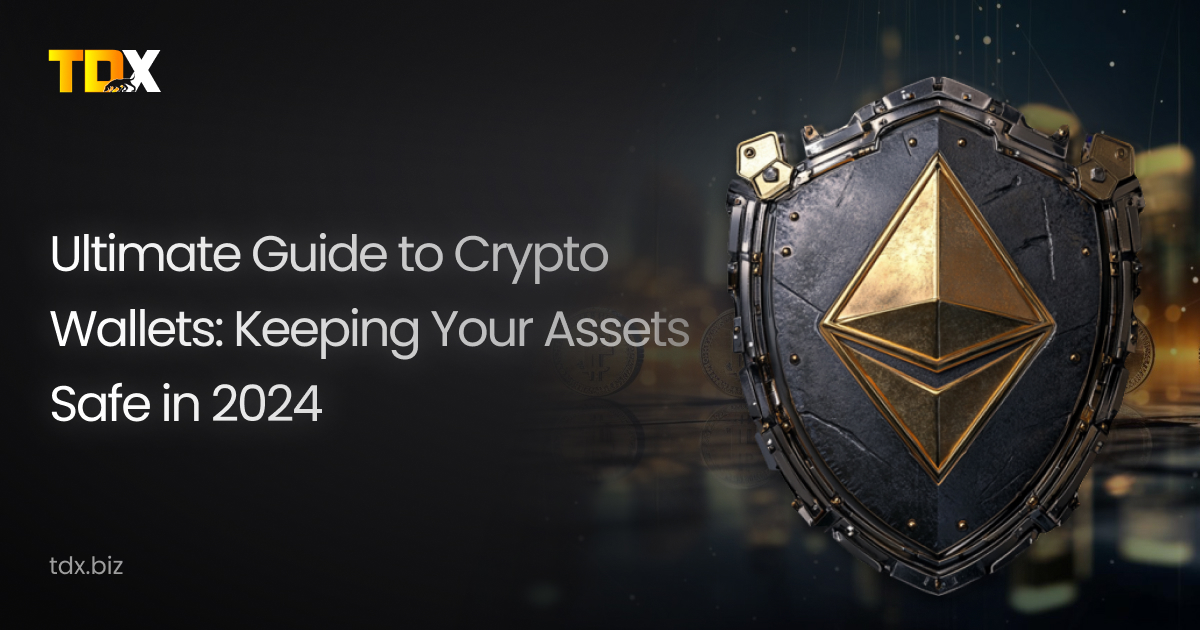

Ultimate Guide to Crypto Wallets: Keeping Your Assets Safe in 2024
As cryptocurrencies continue to rise in popularity, the need for secure storage solutions has never been greater. In 2024, the landscape of digital assets is rapidly evolving, presenting both exciting opportunities and new security challenges.
This Ultimate Guide to Crypto Wallets will help you navigate these complexities by exploring different types of wallets, their features, and best practices to keep your investments safe from cyber threats. Read on to find out more!
What Is a Crypto Wallet and What Is it For?
A crypto wallet is an essential tool for anyone involved in the world of digital assets. Unlike traditional wallets that hold physical currency, a crypto wallet stores the private keys necessary to access and manage your cryptocurrency. These private keys are critical for performing crypto transactions, managing digital assets, and ensuring your digital assets stay safe.
Crypto wallets come in various forms, each offering unique features and levels of security. The primary types are hardware wallets, software wallets, and paper wallets.
Hardware Wallets
These are physical devices designed to store your private keys offline, providing enhanced security against online threats. Popular examples include the Ledger Nano X and Trezor, which keep your private keys offline, preventing unauthorized access even if your computer is compromised.
Software Wallets
These are applications you can install on your desktop or mobile device. They provide easy access to your digital assets and include features like biometric authentication and two-factor authentication for added security. Mobile wallets like MetaMask and desktop wallets like Exodus fall under this category, offering a balance between convenience and security.
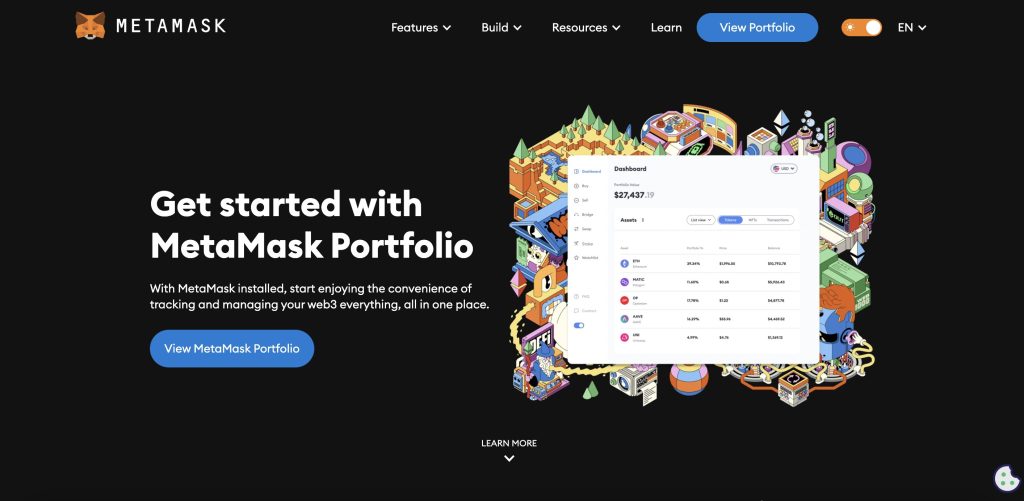
Paper Wallets
A paper wallet involves printing your private keys and wallet address on a piece of paper. While this method keeps your keys offline and away from potential cyber threats, it requires careful handling to avoid loss or damage.
Hot Wallets
These wallets are connected to the internet and offer quick access to your funds, making them ideal for frequent transactions. However, they come with increased risk due to their online nature.
Cold Wallets
Similar to hardware wallets, cold wallets store your private keys offline. Cold storage solutions like the Ledger Nano provide robust security for long-term holdings.
Multi-Signature Wallets
These wallets require multiple private keys to authorize a transaction, adding an extra layer of security.
A secure crypto wallet integrates various advanced security measures like password managers, multi-signature authentication, and cold storage to protect your crypto assets. Additionally, managing your digital assets with a secure crypto wallet involves understanding potential threats such as phishing attacks and employing practices like keeping your wallet software updated and using a password manager to keep your wallet password secure.
In summary, a crypto wallet is indispensable for managing and protecting your cryptocurrency investments. Whether you opt for a hardware wallet, software wallet, or a combination of both, understanding how crypto wallets work and implementing best practices will help keep your digital assets safe in the ever-evolving landscape of 2024.
Top 5 Most Popular Crypto Wallets in 2024
Navigating the world of crypto wallets can be challenging, but certain wallets have stood out in 2024 due to their robust features, security, and ease of use. Here are the top 5 most popular crypto wallets this year:
1. Ledger Nano X
A leader in hardware wallets, the Ledger Nano X offers top-notch security for your private keys. This cold wallet keeps your keys offline, significantly reducing the risk of cyberattacks. The wallet supports over 1,800 cryptocurrencies and is compatible with the Ledger Live app, allowing you to manage your crypto assets seamlessly. Its enhanced security features, like two-factor authentication and biometric authentication, make it a preferred choice for serious investors.
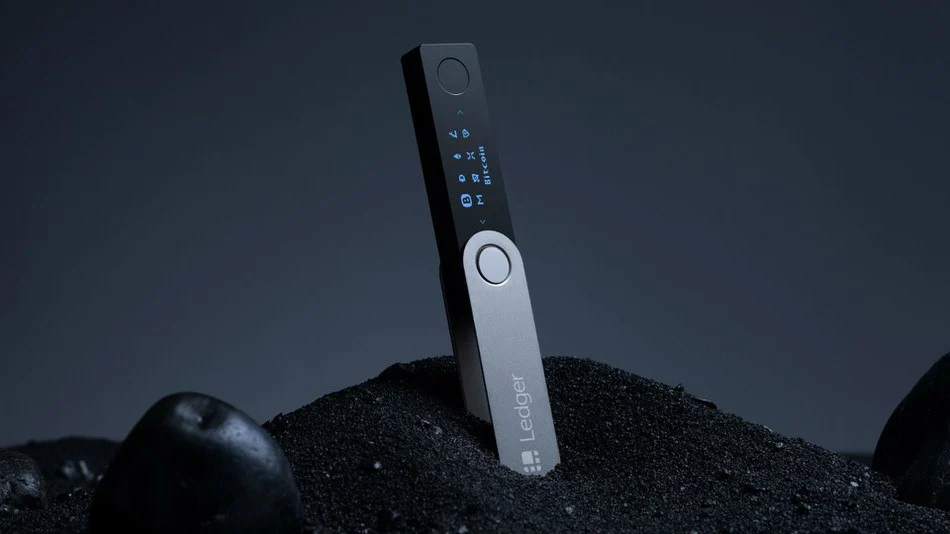
2. MetaMask
MetaMask is a highly popular software wallet known for its user-friendly interface and compatibility with numerous digital assets. Available as both a browser extension and a mobile device app, MetaMask allows you to perform crypto transactions effortlessly. Its built-in phishing attack protection and password manager ensure your crypto wallet’s security. MetaMask also supports multi-signature wallets, adding an extra layer of security for your crypto assets.
3. Trezor Model T
Another top hardware wallet, the Trezor Model T provides a high level of security by keeping your private keys offline. Known for its cold storage capabilities, this physical wallet is ideal for long-term storage of crypto assets. The Trezor Model T features a color touchscreen for easy navigation and supports over 1,000 cryptocurrencies. Its advanced security measures include two-factor authentication and a password manager to keep your digital assets safe.
4. Exodus
Exodus is a versatile desktop wallet that also offers a mobile wallet option. Its intuitive design makes it accessible for both beginners and experienced users. Exodus supports a wide range of cryptocurrencies and provides built-in exchange services for easy trading. The wallet’s security features include biometric authentication and two-factor authentication. Regular updates to the wallet software ensure that your crypto assets remain protected against the latest threats.
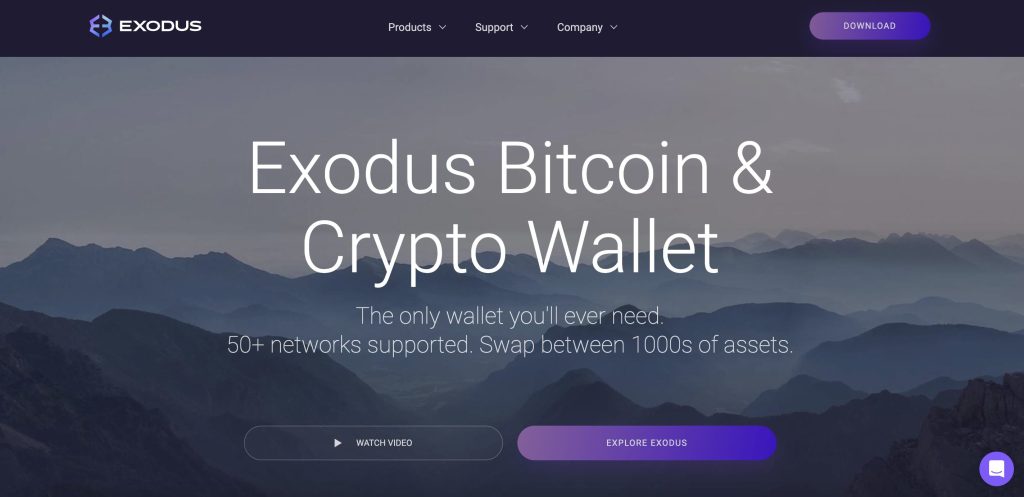
5. Zengo
Zengo is a highly secure and user-friendly mobile crypto wallet available for both iOS and Android devices. Unlike many other wallets, Zengo requires only an email for setup and does not need KYC, making it incredibly accessible. Utilizing MPC cryptography provides robust security without the need for private keys offline. This innovative approach ensures a secure crypto experience while eliminating the risk of losing your private key. Zengo’s advanced security measures include biometric authentication and two-factor authentication, offering an unparalleled blend of security and convenience for managing your digital assets.
Additional Top Wallets in 2024
6. Coinbase Wallet
Coinbase Wallet is highly recommended for beginners due to its user-friendly interface and strong security features, including multi-signature and two-factor authentication. It supports over 100,000 digital assets and is backed by the reputable Coinbase exchange.
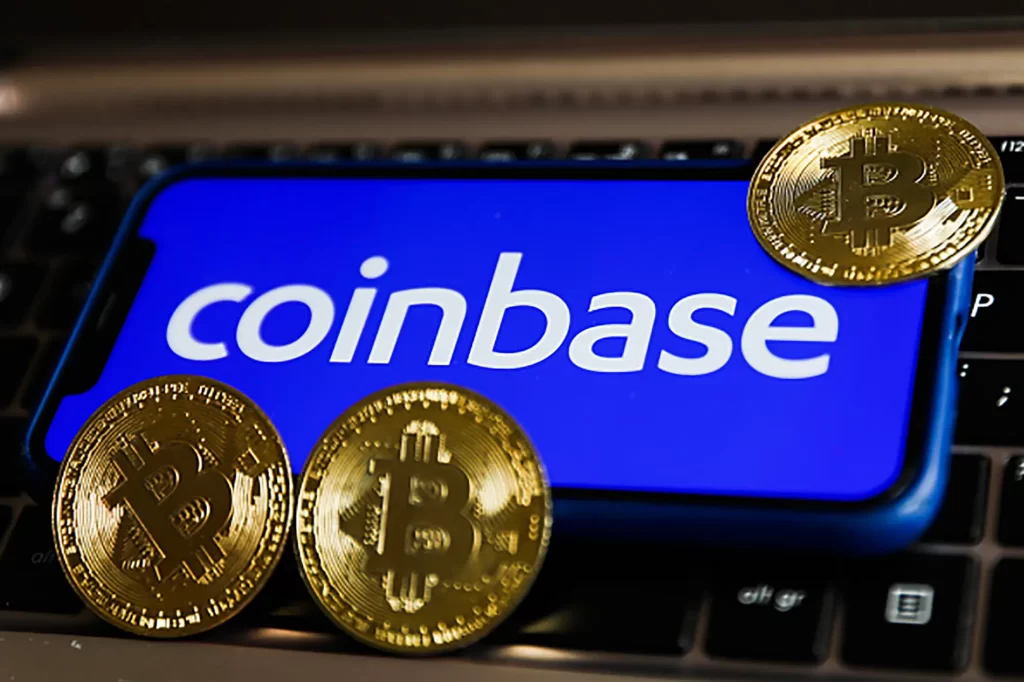
7. Electrum
Electrum is a top choice for Bitcoin enthusiasts, offering extensive security features and high customizability. It supports multi-signature wallets and integrates with hardware wallets like Ledger and Trezor for cold storage.
8. BlueWallet
BlueWallet is praised for its feature-rich mobile app and integration with the Lightning Network, making it ideal for Bitcoin transactions. It supports multi-signature vaults and offers a user-friendly interface.
9. Crypto.com DeFi Wallet
Crypto.com DeFi Wallet is perfect for those venturing into decentralized finance. It offers strong security features like biometric authentication and two-factor authentication and supports over 350 cryptocurrencies.
10. KeepKey
KeepKey is an excellent cold wallet for beginners, offering robust security and an easy-to-read digital display. It supports over 7,000 cryptocurrencies and provides PIN protection and additional passphrases.
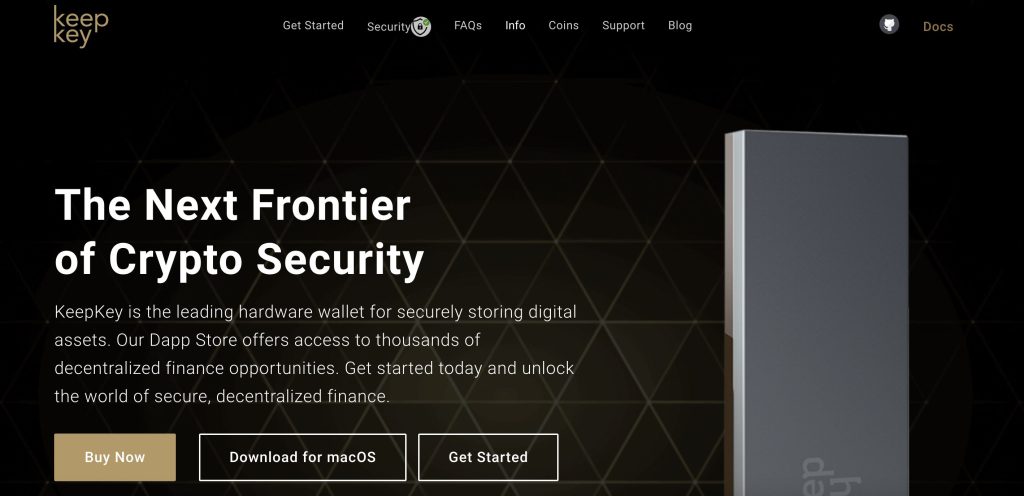
Each of these wallets excels in its category, be it hardware, software, or hot wallets. Whether you’re looking for the highest level of security with a cold wallet like the Ledger Nano X or the convenience of a web wallet like MetaMask, these options will help you keep your crypto wallets safe in 2024.
Best Crypto Wallets for NFT
As the popularity of NFTs still continues to surge, having a reliable and secure NFT wallet is essential for collectors and traders. Here are the best crypto wallets for NFTs in 2024, featuring top-notch security, user-friendly interfaces, and seamless compatibility with major NFT marketplaces.
1. MetaMask: Best Ethereum Wallet for NFTs
MetaMask is one of the most widely used crypto wallets for interacting with the Ethereum blockchain, making it an excellent choice for NFT enthusiasts. This software wallet is available as a browser extension and a mobile device app, allowing users to manage their digital assets wherever they go. MetaMask’s intuitive interface and built-in support for NFT marketplaces like OpenSea and Rarible make it a go-to wallet for NFT transactions. The wallet also includes phishing attack protection and a password manager to ensure your crypto wallet’s security.
2. Phantom: Best Crypto Wallet for Solana NFTs
Phantom is the go-to choice for Solana blockchain users looking to manage their NFTs efficiently. This software wallet offers a sleek and user-friendly interface, making it easy to navigate and manage your digital assets. Phantom provides high-level security features, including biometric authentication and two-factor authentication, ensuring your cryptocurrency wallet remains secure. Its seamless integration with Solana-based NFT marketplaces makes it a top pick for Solana NFT collectors.
3. Alpha Wallet: Best NFT Wallet for Developers
Alpha Wallet stands out as the best NFT wallet for developers due to its open-source nature and robust support for custom tokens and smart contracts. It offers unparalleled flexibility for developers looking to create and manage NFTs. Alpha Wallet supports a wide range of digital assets and is compatible with various NFT marketplaces. Its advanced security measures, including private keys offline storage and biometric authentication, make it an excellent choice for tech-savvy users.
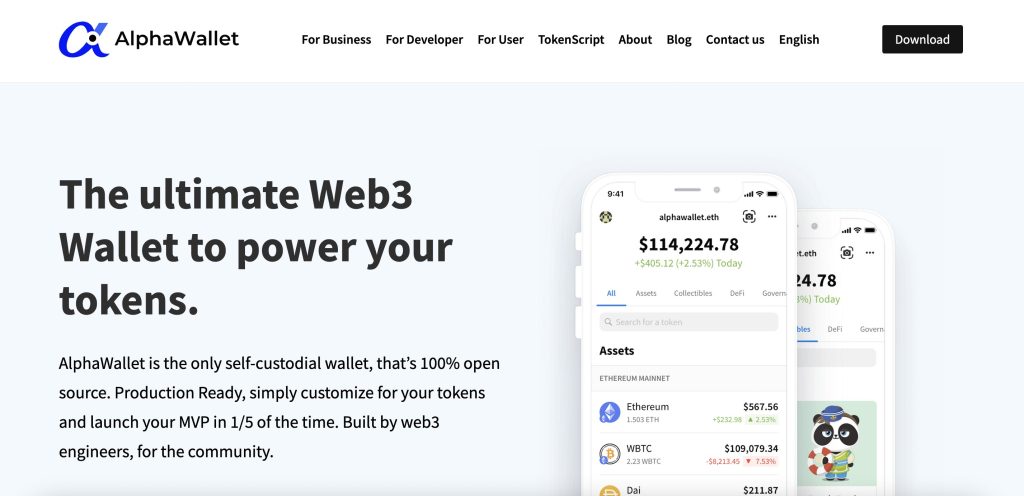
4. Math Wallet: Best Multi Chain Web3 Wallet
Math Wallet is a versatile multi-chain wallet that supports over 60 blockchains, making it a top choice for users looking to manage NFTs across different platforms. This software wallet offers both mobile and desktop versions, allowing for seamless crypto transactions and management of digital assets. Math Wallet’s integration with major NFT marketplaces and its user-friendly interface makes it a convenient and secure option for NFT collectors.
5. Enjin Wallet: Best Multi-Function NFT Wallet
Enjin Wallet is specifically designed with gamers and NFT collectors in mind. This software wallet supports a broad range of cryptocurrencies and NFTs, and it’s compatible with popular NFT marketplaces like OpenSea and Enjin’s own marketplace. Enjin Wallet offers top-tier security features, including biometric authentication, two-factor authentication, and advanced security measures to protect your crypto assets. The wallet also allows users to manage their crypto transactions easily and securely on their mobile devices.
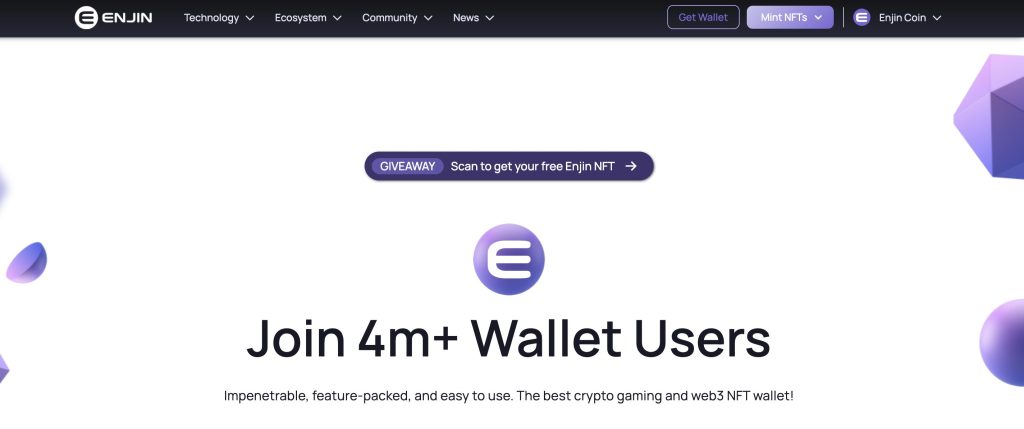
Basic Security Rules for Keeping Your Cryptocurrencies Safe and Secure
Here are some essential security rules to follow to ensure your cryptocurrencies remain safe:
1. Use a Secure Crypto Wallet
Choosing the right crypto wallet is the first step in safeguarding your digital assets. Whether you opt for a hardware wallet, software wallet, or mobile wallet, ensure that it offers robust security features. Hardware wallets like Ledger Nano X keep your private keys offline, providing an extra layer of security against cyber threats. Software wallets such as MetaMask offer user-friendly interfaces and strong security measures, including password managers and phishing attack protection.
2. Keep Your Private Keys Offline
One of the most critical aspects of crypto security is keeping your private keys offline. Cold wallets, such as hardware and paper wallets, store your private keys offline, reducing the risk of them being accessed by hackers. Always avoid sharing your private key and store it in a secure location to prevent unauthorized access.
3. Enable Two-Factor Authentication
Two-factor authentication (2FA) adds an extra layer of security to your cryptocurrency wallet. By requiring a second form of verification, such as a mobile device code, it makes it more challenging for hackers to gain access to your account. Most crypto wallets, including desktop wallets and online wallets, offer 2FA as a standard security feature.
4. Use a Strong Password and Password Manager
A strong, unique password is essential for protecting your crypto assets. Avoid using easily guessable passwords and consider using a password manager to generate and store complex passwords. This practice ensures that your wallet password is secure and reduces the risk of unauthorized access.
5. Stay Vigilant Against Phishing Attacks
Phishing attacks are a common method used by cybercriminals to steal private keys and access crypto wallets. Be cautious of unsolicited emails, messages, or websites that ask for your private information. Always verify the authenticity of the source before entering any sensitive information and use wallet software that includes phishing protection.
6. Regularly Update Your Wallet Software
Keeping your wallet software up to date is crucial for maintaining the security of your digital assets. Regular updates often include patches for security vulnerabilities and improvements to the wallet’s security features. Ensure that you are using the latest version of your chosen crypto wallet to protect against the latest threats.
7. Use Biometric Authentication
Biometric authentication, such as fingerprint or facial recognition, adds an additional layer of security to your mobile wallets and hardware wallets. This advanced security measure ensures that only you can access your cryptocurrency wallet, making it more secure than traditional password protection.
8. Be Cautious with Internet Access
When managing digital assets, avoid using public Wi-Fi networks, as they can be vulnerable to security breaches. Instead, use a secure, private internet connection to perform crypto transactions. This practice helps to prevent unauthorized access to your wallet address and other sensitive information.
9. Diversify Your Storage Solutions
Using multiple wallets to store your cryptocurrencies can reduce the risk of losing all your assets in case one wallet is compromised. Consider diversifying your storage solutions by using a mix of hardware, software, and online wallets. This approach ensures that your crypto wallets remain safe and your digital assets are protected.
10. Implement Multi-Signature Wallets
Multi-signature wallets require multiple private keys to authorize a transaction, adding an extra layer of security. This feature is particularly useful for organizations or individuals with significant crypto assets, as it ensures that no single person has complete control over the funds.
By following these basic security rules, you can significantly enhance the security of your cryptocurrency holdings. Remember, the key to crypto security lies in being vigilant and proactive in protecting your digital assets.
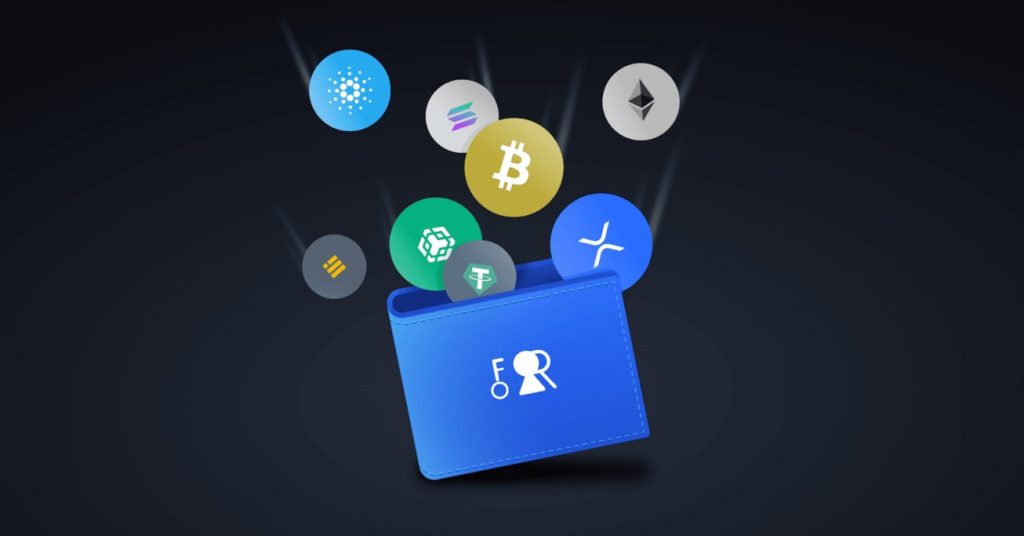
How Many Crypto Wallets Should I Have?
Having multiple crypto wallets is essential for diversification and security. Ideally, you should have at least two to three wallets. Use a hardware wallet for long-term storage to keep your private keys offline, offering enhanced security. A software wallet or a mobile wallet can be useful for daily transactions, providing convenience with strong security features like biometric authentication and two-factor authentication.
Diversification across different types of wallets — hardware, software, and web wallets — ensures your digital assets remain safe and accessible. Balancing between custodial and non-custodial wallets further strengthens your crypto security. This approach helps protect your crypto assets from potential threats and loss of access.
Crypto Exchanges vs. Wallets
Navigating the exciting world of crypto involves understanding the key differences between crypto exchanges and crypto wallets. While both are essential for managing digital assets, they serve distinct purposes and come with their own sets of advantages and disadvantages. Let’s check them out:
Crypto Exchanges
Crypto exchanges are platforms where users can buy, sell, and trade cryptocurrencies. They act as intermediaries, facilitating transactions between buyers and sellers. Some of the leading crypto exchanges include Binance, Coinbase, Kraken, and more.
Advantages:
- Ease of Use: Exchanges offer user-friendly interfaces, making it simple for beginners to start trading.
- Liquidity: High liquidity ensures quick and efficient transactions.
- Variety of Coins: Most exchanges support a wide array of cryptocurrencies, allowing users to diversify their portfolios.
Disadvantages:
- Security Risks: Storing funds on an exchange exposes users to potential security breaches and hacking incidents.
- Custodial Nature: Exchanges hold your private keys, meaning you don’t have full control over your crypto assets. The principle “not your keys, not your crypto” applies here.
- Regulatory Issues: Exchanges are often subject to regulatory scrutiny, which can impact their availability and functionality.
Crypto Wallets
A crypto wallet is a digital tool that allows users to store, send, and receive cryptocurrencies. Wallets can be classified into hardware wallets, software wallets, mobile wallets, desktop wallets, and web wallets.
Advantages:
- Control Over Assets: Unlike exchanges, wallets allow users to hold their private keys, giving them full control over their crypto assets.
- Enhanced Security: Wallets, especially hardware wallets like Ledger Nano X, offer advanced security measures, including private keys offline, biometric authentication, and two-factor authentication.
- Variety: Users can choose from different types of wallets based on their needs, whether it’s a secure crypto wallet for long-term storage or a hot wallet for frequent transactions.
Disadvantages:
- Complexity: For beginners, setting up and managing a wallet may seem complicated.
- Responsibility: Users are fully responsible for the security of their wallets. Losing access to private keys can result in the permanent loss of crypto assets.
- Limited Features: Wallets mainly focus on storage and transactions, lacking the trading features available on exchanges.
Conclusion
In 2024, managing your digital assets effectively hinges on understanding the differences between crypto wallets and exchanges. A diversified approach is crucial for crypto security. Use a secure crypto wallet, such as a hardware wallet, to keep your private keys offline and enhance security measures. For frequent transactions, a software wallet or mobile wallet offers convenience with strong security features like biometric authentication and two-factor authentication.
Remember, “not your keys, not your crypto.” It’s vital to maintain control over your private keys to keep your digital assets safe. By utilizing a combination of the best crypto wallets and exchanges, you can navigate the latest security threats and ensure your digital assets remain secure. Good luck!
40,000 readers 🚀 are getting insights with our media
 Read on Medium
Read on Medium 

Article
“Is Ethereum dead?” This is a trending argument that is appearing in various crypto communities and media. Which is not…

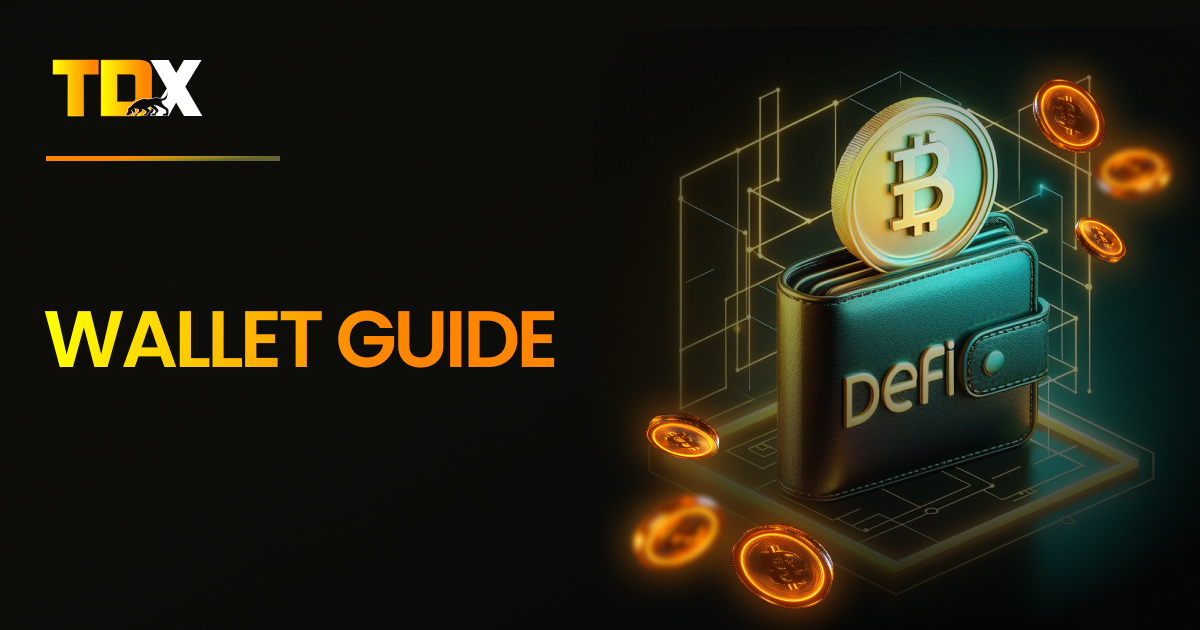
Guide
Welcome to the beginner’s guide on Trust Wallet, MetaMask, and Exodus—three most common cryptocurrency wallets for managing your crypto assets….


Article
When Venezuela’s inflation hit 189.8% in 2023 [Central Bank of Venezuela, 2023], Maria’s life savings of 200 million bolivars (enough…


Article
For generations, Indians have trusted one investment: fixed deposits (FDs). If you walk into any Indian household, chances are someone…


